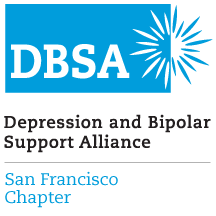
Mood Disorders
If you have a mood disorder, your general emotional state or mood is distorted or inconsistent with your circumstances and interferes with your ability to function. You may be extremely sad, empty or irritable (depressed), or you may have periods of depression alternating with being excessively happy (mania).
Major Depressive Disorder
Frequently referred to simply as depression, is a serious but treatable medical condition that affects how a person feels, thinks, and acts. Though typically characterized by feelings of sadness, depression symptoms may appear as irritability or apathy. Fortunately, with early detection, diagnosis and a treatment plan consisting of medication, psychotherapy and healthy lifestyle choices, many people can and do get better.
Some will only experience one depressive episode in a lifetime, but for most, depressive disorder recurs. Without treatment, episodes may last a few months to several years.
More than 17 million U.S. adults—over 7% of the population—had at least one major depressive episode in the past year. People of all ages and all racial, ethnic and socioeconomic backgrounds experience depression, but it does affect some groups more than others.
Bipolar Disorder
A mental illness that causes dramatic shifts in a person’s mood, energy and ability to think clearly. People with
bipolar experience high and low moods—known as mania and depression—which differ from the typical ups-and-downs most people experience.
The average age-of-onset is about 25, but it can occur in the teens, or more uncommonly, in childhood. The condition affects men and women equally, with about 2.8% of U.S. adults experiencing bipolar disorder each year. Approximately 83% of cases of bipolar disorder are classified as "severe".
If left untreated, bipolar disorder usually worsens. However, with good treatment, often including psychotherapy, medications, a healthy lifestyle and a routine building, many people live well with the condition. (NAMI.org)
Join our mailing list
